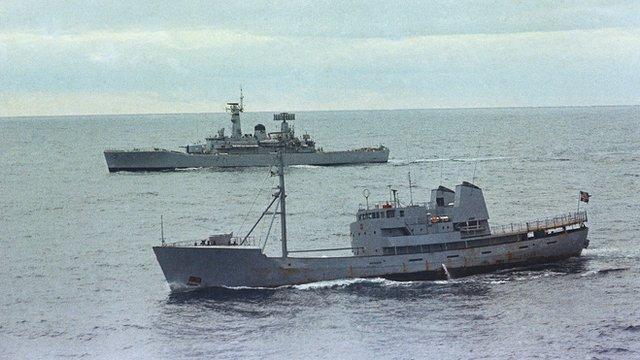Cod Wars weapon presented to Hull Maritime Museum
- Published
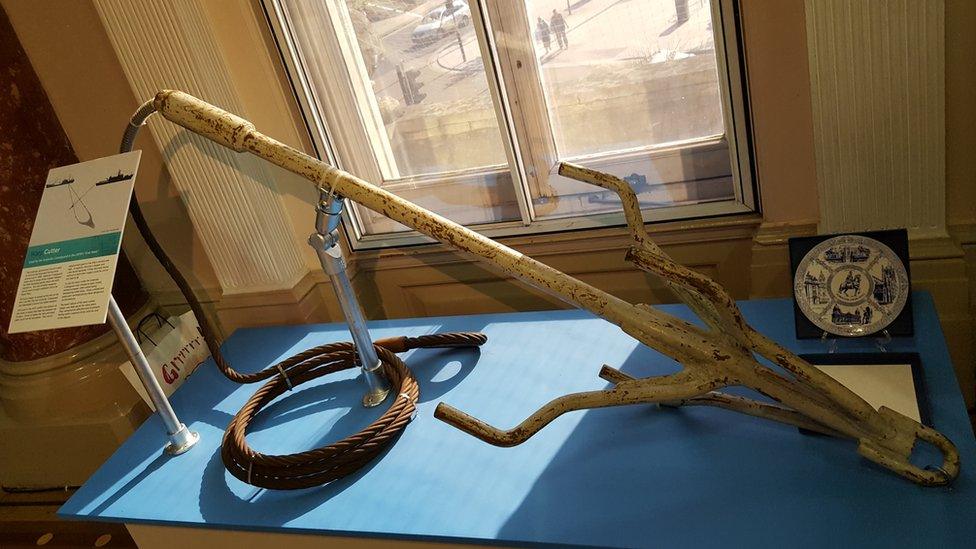
The Icelandic warp cutter is on display at Hull Maritime Museum
An underwater weapon used by Icelandic fishermen to sabotage British trawlers during the Cod Wars has been presented to Hull Maritime Museum.
Warp cutters were developed by the Icelandic Coastguard to cut the nets of foreign vessels during the bitter decades-long conflict.
The presentation forms part of a visit by civic leaders from Reykjavik.
In February, the bells of two fishing vessels involved in the dispute were exchanged in a gesture of co-operation.
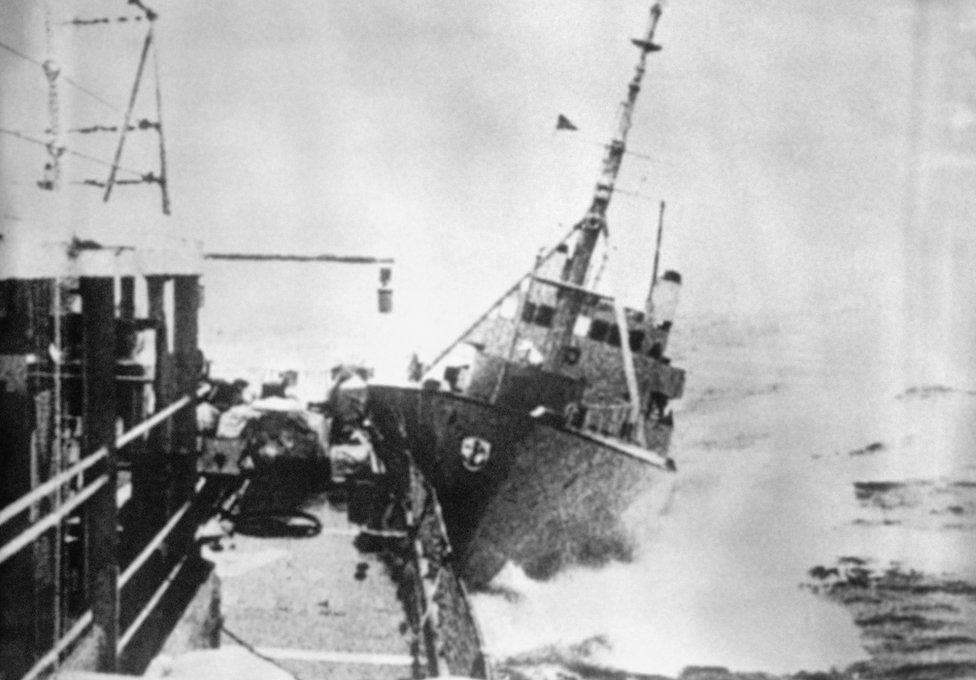
A Royal Navy frigate and the Icelandic gunboat Thor collide in 1976
The Cod Wars
Between the 1950s and 1970s, the UK sparred with Iceland over fishing rights in the North Atlantic, in what became known in the British press as the "Cod Wars".
British trawler fleets had long fished in the waters off Iceland but from the 1950s the country sought to extend the area of its territorial waters from three to 12-miles from the coast.
Britain refused to recognise the declaration and continued to fish within the limits, leading to violence between British and Icelandic vessels that became known as the first Cod War.
The pattern repeated itself in September 1972 and May 1975 when Iceland declared a 50- then 200-mile limit.
It was during the 1972 clashes that Iceland first deployed the warp cutters to slash the trawling wires of fishing nets.
Britain conceded to the limit in 1976 and the closure of the Icelandic fishing grounds effectively ended British long-distance fishing, with a devastating effect on cities like Hull.

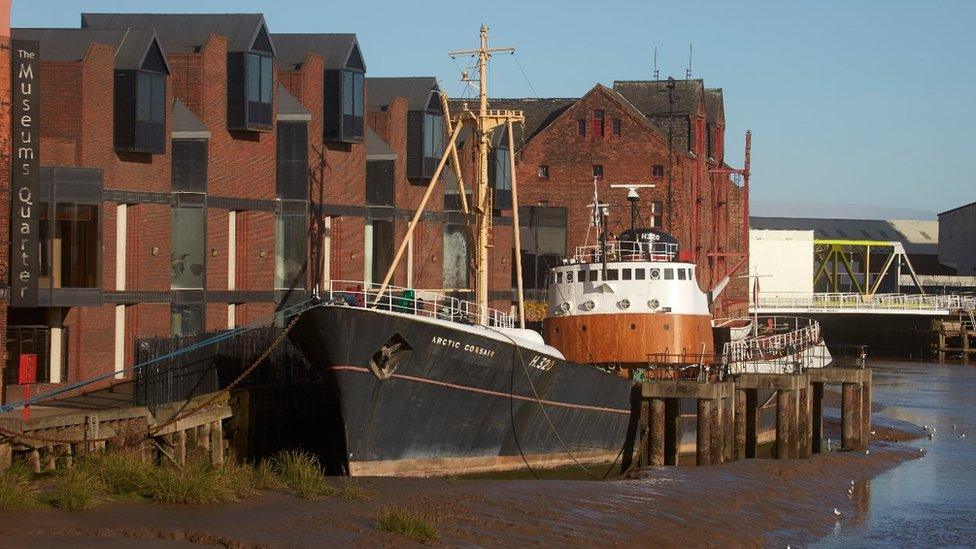
Arctic Corsair is due to be moved to a dry dock as part of a £27.5m investment in the city's maritime heritage
The visit will include a tour of Hull trawler Arctic Corsair, which was rammed by the Icelandic vessel Odinn during the Cod Wars
According to National Historic Ships UK, Arctic Corsair broke the world record for landing the most cod and haddock, external from the White Sea in 1973.
Hull city councillor Terry Geraghty, said: "The visit will offer an insight to Hull's strong fishing industry and links to Iceland and their gift of the warp cutter will illustrate the rich and varied history between the two communities."
Líf Magneudottir, president of Reykjavik City Council, said: "Reykjavik and Hull are sister cities, and for a good reason.
"We can trace this relationship back many centuries and the common ground has been the ocean that separates the two."
- Published20 February 2017
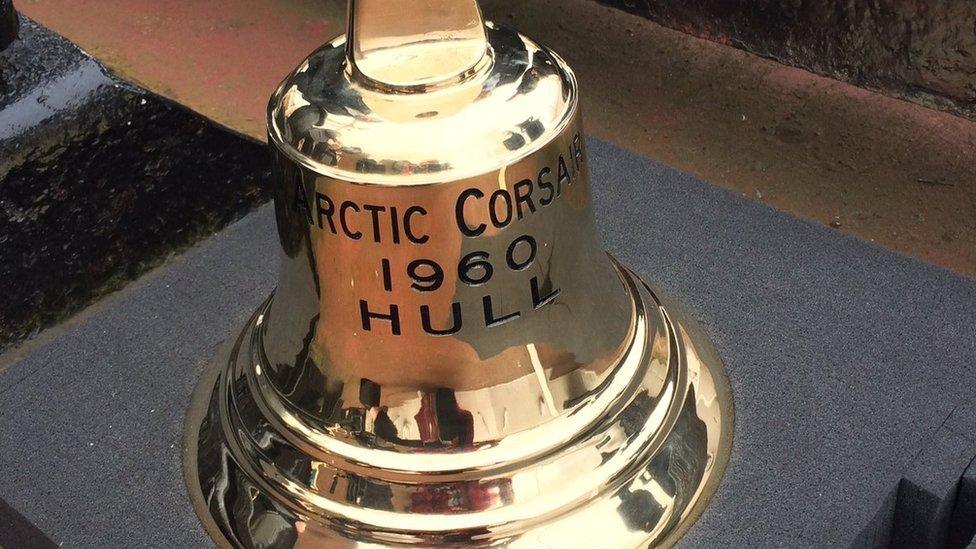
- Published13 February 2017
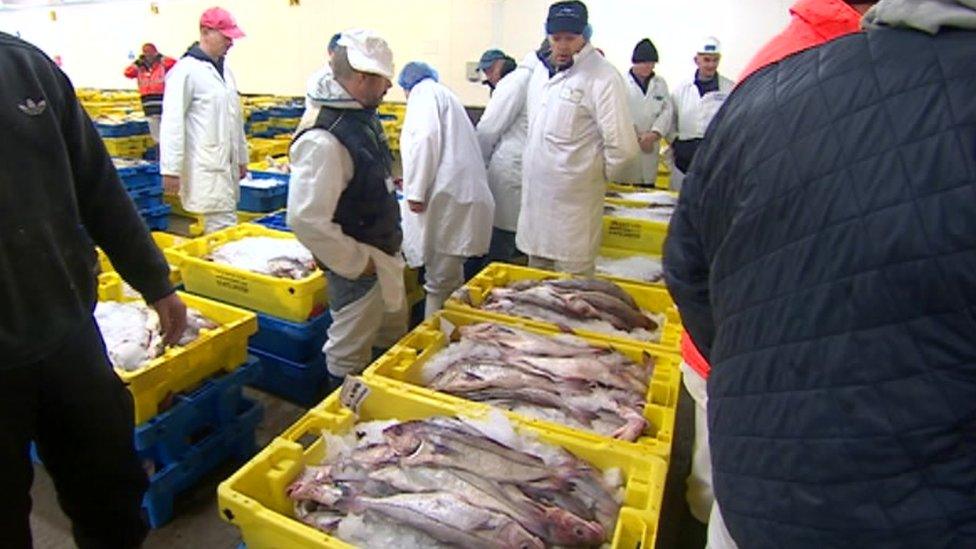
- Published3 February 2016
